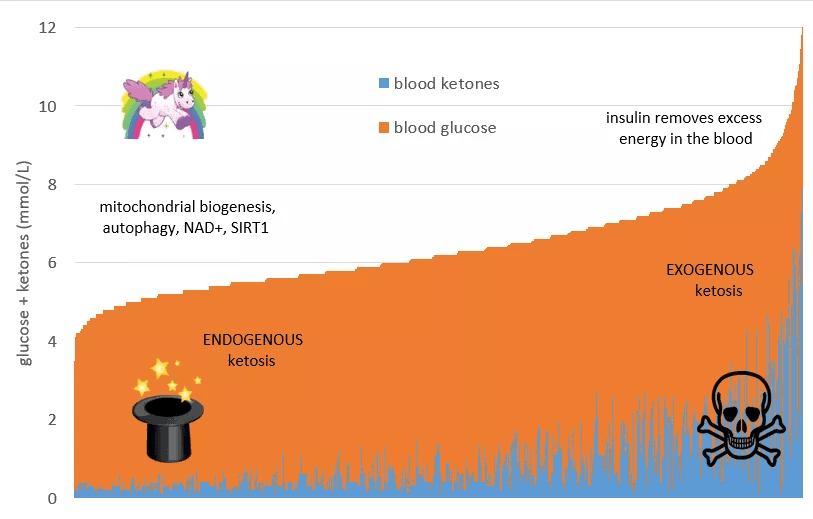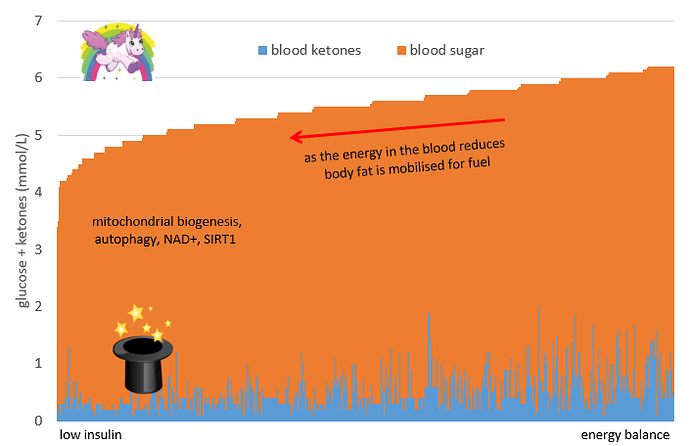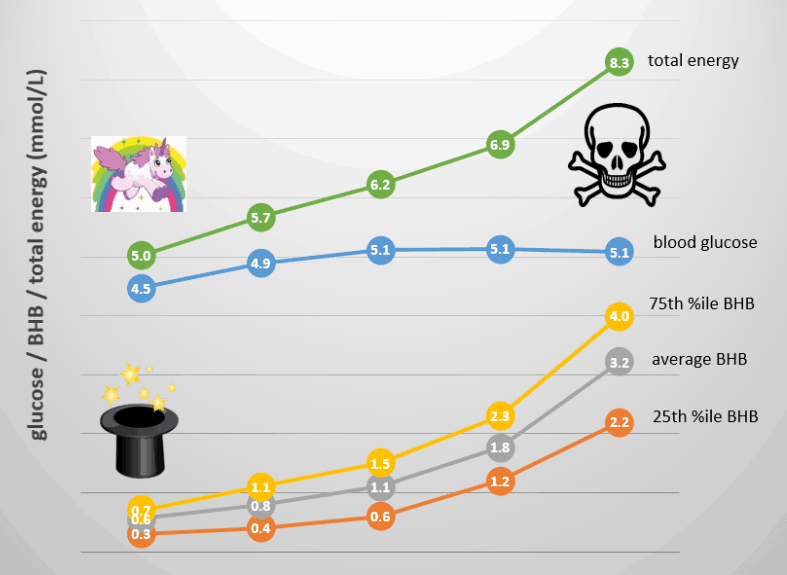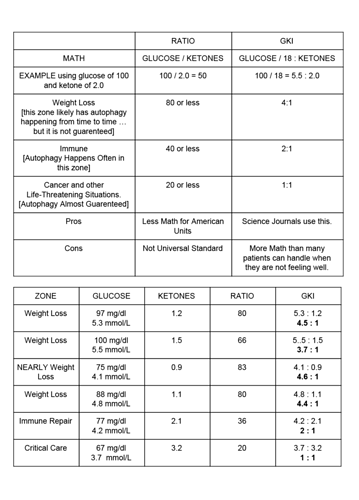@gangelo Great question! And no doubt you’ll get a nice range of answers. Here’s mine…
Your ketone figures will like wander all over the map - throughout the day, week, month - and this variability won’t actually mean a whole lot in the larger scheme of things.
If you’re significantly reducing your net carbs (e.g., <20g/day, especially when first adapting to keto eating) and getting an appropriate amount of proteins (say, roughly 1-2 g per kg of lean body weight), with all the rest of your daily calories coming from healthy sources of fat, well, then you’re in ketosis. Period.
As some are fond of saying, if you’re eating less than 20g of carbs and breathing, you’re in ketosis. (Unstated alternative being: otherwise, you’d be dead - for lack of dietary glucose, your body MUST be producing ketones for you to not collapse.)
To use my case as an illustration: when I first began eating keto, my blood ketone levels quickly posted 2-3 mmol/L. Then quickly they began to surge to 4-6 mmol/L and stayed there most of the time for weeks on end. Occasionally 3-4, sometimes >6, but generally they bounced all over the map at these “lofty” levels.
Then … for no apparent reason (same diet, exercise, sleep, low stress), they began to descend. More currently, they fall in the 1-2 mmol/L zone. And this morning, ketones registered 0.7 mmol/L (although admittedly I had more Asian take-out food last night of questionable pedigree, although I ate only the meat and green veggies), plus I do feel a little “off” this morning.
My larger point is that intra-day variability is hard to nail down since we’re all different - not only from each other given our unique reactions to various foods and prevailing metabolic states, but also we’re markedly different from ourselves since our metabolisms adapt and adjust over time.
Put differently: We’re never the same n=1 twice in a row.
I would strongly encourage you to take all of the many answers you’ll receive (including this one) along with a grain of salt (actually, several grams of salt might be a better idea, including sufficient magnesium  ) … your own ketone data series will be keenly interesting to you - for a while - and then it will become less fascinating as you begin to “measure” your progress primarily by how you feel, not by what a blood test suggests.
) … your own ketone data series will be keenly interesting to you - for a while - and then it will become less fascinating as you begin to “measure” your progress primarily by how you feel, not by what a blood test suggests.
Hope some of this actually makes sense and becomes useful to you over time.
Onward!


 ) … your own ketone data series will be keenly interesting to you - for a while - and then it will become less fascinating as you begin to “measure” your progress primarily by how you feel, not by what a blood test suggests.
) … your own ketone data series will be keenly interesting to you - for a while - and then it will become less fascinating as you begin to “measure” your progress primarily by how you feel, not by what a blood test suggests.



 Personally, I think all veggies should be cooked (save salad). They’re hard enough to digest and get nutrition out of, and cooking helps that.
Personally, I think all veggies should be cooked (save salad). They’re hard enough to digest and get nutrition out of, and cooking helps that.